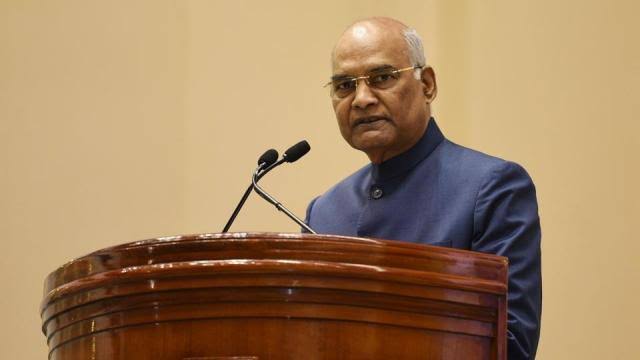
File Picture
As the North East of India simmers over CAB, President Ram Nath Kovind gave his assent to the Citizenship (Amendment) Bill, 2019, turning it into an Act.
According to an official notification, the Act comes into effect with its publication in the official gazette on Thursday.
According to the Act, members of Hindu, Sikh, Buddhist, Jain, Parsi and Christian communities who have come from Pakistan, Bangladesh and Afghanistan till December 31, 2014 and facing religious persecution there will not be treated as illegal immigrants but given Indian citizenship.
The Citizenship (Amendment) Bill was passed by Rajya Sabha on Wednesday and by Lok Sabha on Monday.
The Act says the refugees of the six communities will be given Indian citizenship after residing in India for five years, instead of earlier requirement of 11 years.
The Act also proposes to give immunity to such refugees facing legal cases after being found as illegal migrants.
According to the legislation, it will not be applicable to the tribal areas of Assam, Meghalaya, Mizoram and Tripura as included in the Sixth Schedule of the Constitution and in the areas covered under the Inner Line Permit, notified under the Bengal Eastern Frontier Regulation, 1873.
The ILP regime is applicable in Arunachal Pradesh, Nagaland and Mizoram.
However, a large section of people and organisations in the Northeast, especially in Assam and Tripura, have opposed the Act, saying it will nullify the provisions of the Assam Accord of 1985, which fixed March 24, 1971, as the cut-off date for deportation of all illegal immigrants irrespective of religion.
Protests against the legislation have intensified since Monday in the Northeast.
[the_ad id=’22722′]


















